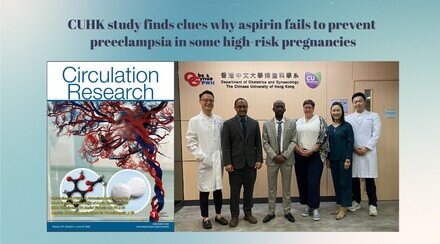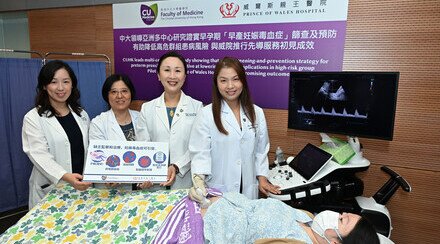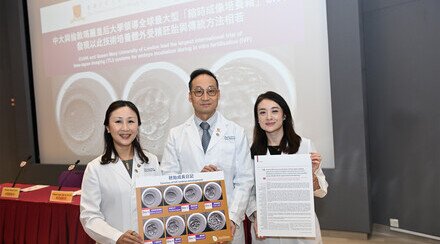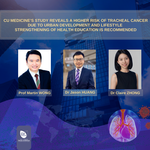CUHK unveils novel therapeutic targets and drug repurposing opportunities for endometriosis
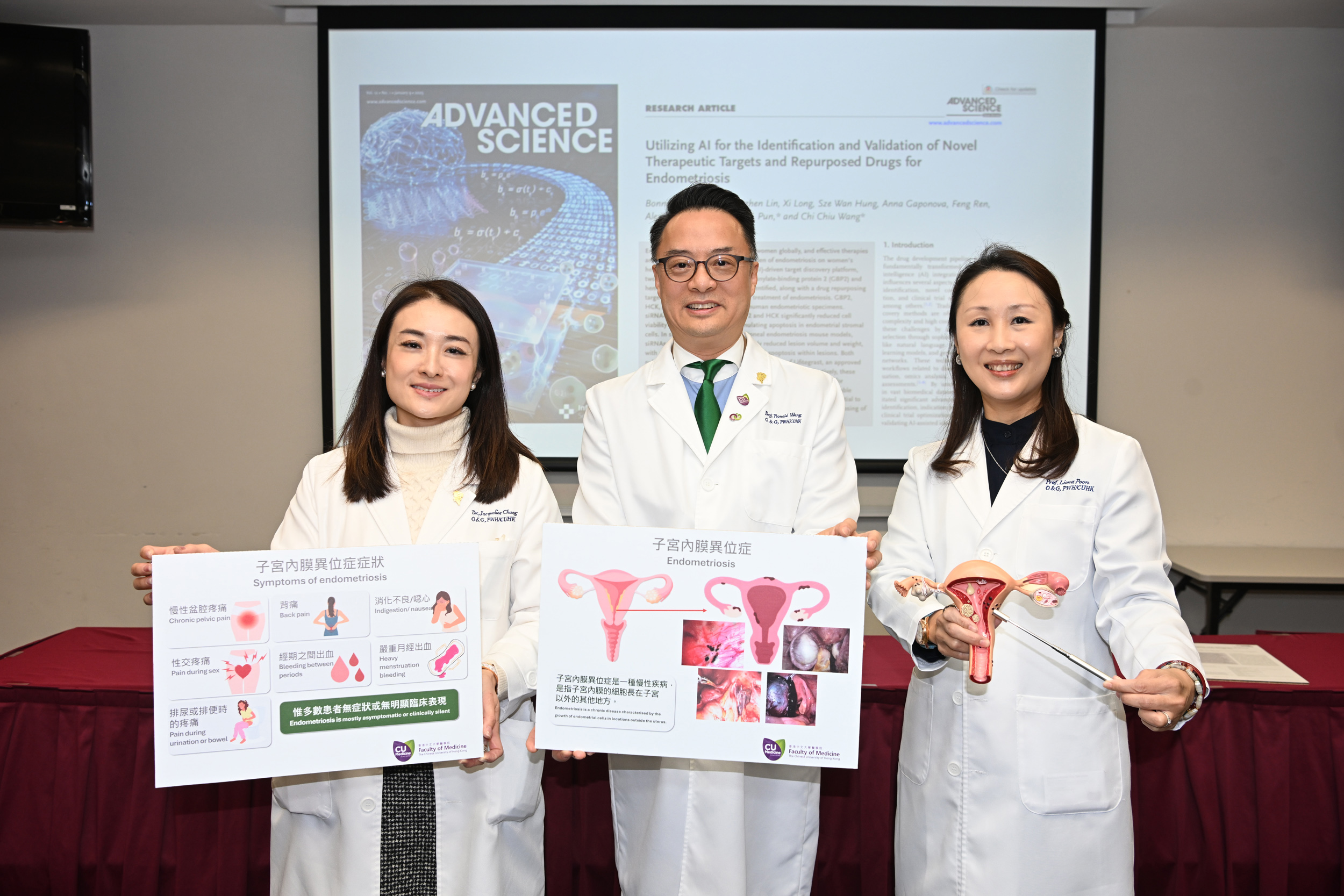
CU Medicine used AI to perform a meta-analysis of an endometriosis-associated dataset, successfully identifying two novel therapeutic targets for endometriosis, and discovering that an integrin antagonist, a non-steroidal anti-inflammatory drug approved for dry eye disease, can potentially suppress the growth of endometriotic lesions. (From left) Associate Professor Dr Jacquline Chung, Professor Ronald Wang and Department Chairperson Professor Liona Poon from the Department of Obstetrics and Gynaecology at CU Medicine.
The Chinese University of Hong Kong (CUHK)’s Faculty of Medicine (CU Medicine) used an artificial intelligence-driven platform to perform a meta-analysis of an endometriosis-associated dataset, successfully identifying two novel therapeutic targets for endometriosis, and discovering that an integrin antagonist, a non-steroidal anti-inflammatory drug approved for dry eye disease, can potentially suppress the growth of endometriotic lesions which could be a repurposed treatment option. The findings were published in the international scientific journal Advanced Science.
No cure for endometriosis, only painkillers or hormone therapies for symptomatic relief
Endometriosis happens when tissue similar to the lining of the uterus grows outside the uterus, often affecting the pelvic area, ovaries and elsewhere. Ovarian endometriomas, or “chocolate cysts”, occur when endometriosis develops in the ovary and cysts fill with old blood. Approximately 5-15% of women of reproductive age suffer from this disease, with symptoms such as abdominal or pelvic pain in severe cases. The condition can also disturb the menstrual cycle and lead to infertility and ovarian cancer. Currently, there is no cure for endometriosis since the cause is unknown. Painkillers and hormone therapies are conventional treatment options offering symptomatic relief, while severe cases may need surgery to remove endometriotic lesions.
Dr Jacqueline Chung Pui-wah, Clinical Associate Professor in the Department of Obstetrics and Gynaecology at CU Medicine, said: “Current therapeutic approaches to endometriosis often provide only temporary relief, with a high risk of recurrence. Besides, hormone therapies raise concerns about long-term side effects and dependence. Therefore, it is important to look for novel therapeutic approaches to endometriosis.”
Professor Liona Poon Chiu-yee, Chairperson and Clinical Professor of the Department of Obstetrics and Gynaecology at CU Medicine, said: “The Department is dedicated to advancing innovative preventive and therapeutic approaches to women’s health. For this research, we collaborated with a local AI biotech company to investigate non-hormonal drugs for endometriosis using an AI-driven target discovery platform. After analysing large sets of biological data, we have identified new potential therapeutic targets, which hopefully can be developed into precise treatment options and improve patients’ quality of life.”
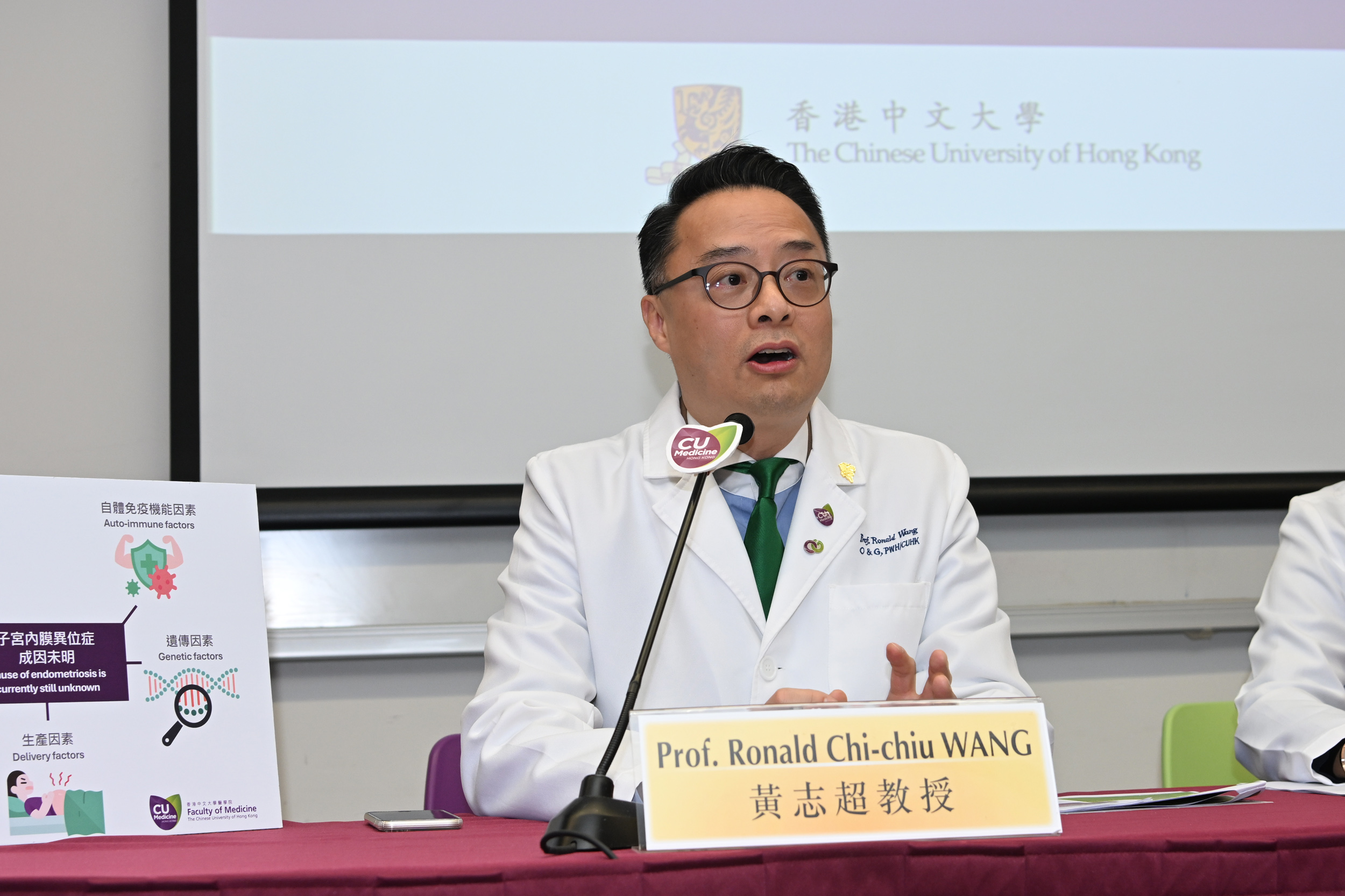
Professor Ronald Wang says identifying GBP2 and HCK as novel therapeutic targets helps understand the immune factors involved in endometriosis, paving the way for more targeted and effective treatment strategies.
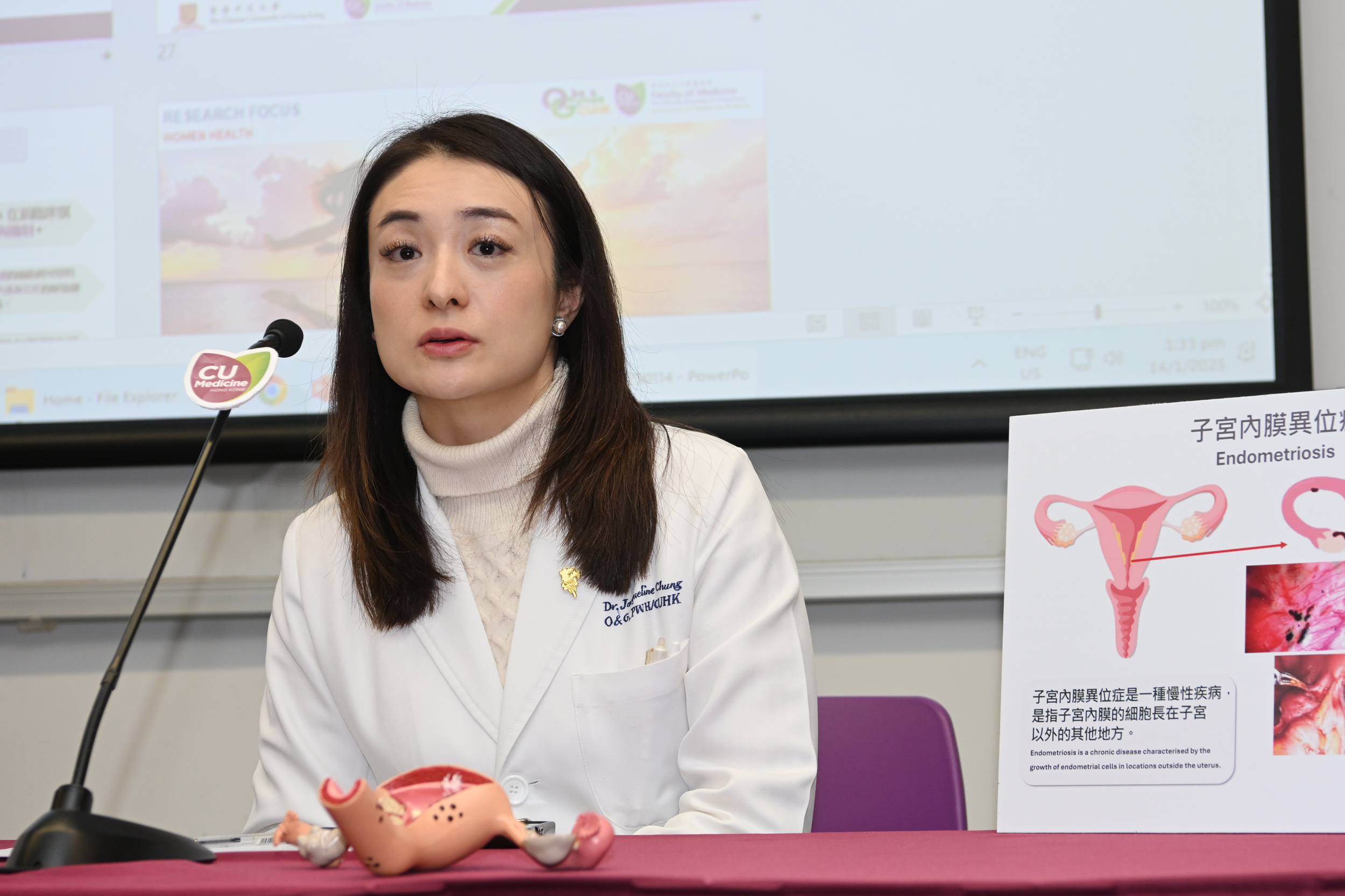
Dr Jacquline Chung says current therapeutic approaches to endometriosis often provide only temporary relief, with a high risk of recurrence. Besides, hormone therapies raise concerns about long-term side effects and dependence.
Suppression of GBP2 and HCK proteins can reduce the size and weight of endometriotic lesions
The research team used the AI platform to perform a meta-analysis of an endometriosis-associated dataset, searching for new therapeutic targets. They revealed for the first time that guanylate-binding protein 2 (GBP2), a protein that regulates immune and inflammatory processes, and hematopoietic cell kinase (HCK), which is involved in cell proliferation and survival signalling, are therapeutic protein targets in endometriosis. The study showed reducing the levels of GBP2 and HCK in mouse models of endometriosis led to smaller and lighter endometriotic lesions, less cell growth and more cell death.
Professor Ronald Wang Chi-chiu, Professor and Division head in the Department of Obstetrics and Gynaecology at CU Medicine, who led the study, said: “Identifying GBP2 and HCK as novel therapeutic targets helps us understand the immune factors involved in endometriosis, paving the way for more targeted and effective treatment strategies. These proteins were found to be more active in human samples of endometriosis, highlighting their relevance to the disease mechanism. Our experiment in endometriosis mouse models showed targeting these proteins could help reduce the growth and development of endometriotic lesions.”
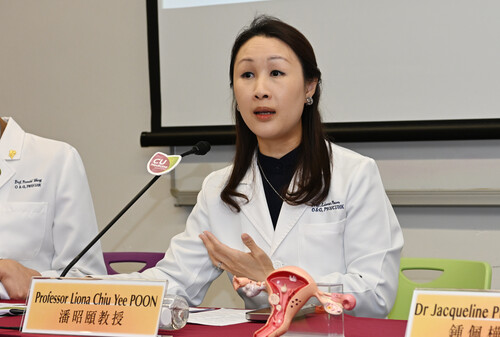
Professor Liona Poon says drug repurposing helps shorten the time it takes to develop novel drugs.
The research team further used the AI platform to look for existing drugs that could be repurposed to treat endometriosis. Given that integrin beta 2 (ITGB2) has high expression level in the human endometriotic specimens, researchers tested an antagonist to inhibit ITGB2 as a potential drug that could be repurposed for endometriosis. The antagonist is a non-steroidal anti-inflammatory drug approved for dry eye disease. Results showed the drug effectively suppressed lesion growth when administered in an endometriosis mouse model, indicating that it could be a viable treatment option for endometriosis in clinical settings in future. Notably, the use of AI for target discovery helps shorten the time it takes to develop novel drugs.
The research was supported by the Research Grant Council (RGC), Health and Medical Research Fund (HMRF) and other funds.


